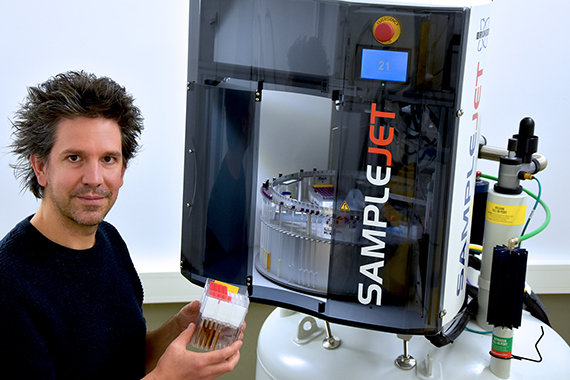BioTechMed-Graz: Integrative Metabolism Research Center (IMRC)

Video aus der Reihe "Wissenswert"
PI: Tobias Madl
Focus: Integrative structural biology and metabolomics. Tobias Madl and his team investigate the molecular mechanisms of how disordered proteins regulate signal transduction, intracellular transport and phase separation. We work at the interface between structural biology, biophysics, cell biology and medicine. NMR spectroscopy and biophysical methods are the most important tools in our laboratory. Our research focuses on the Wnt, FOXO, and p53 signaling pathways, as well as RNA-binding proteins. Disorders in these pathways lead to a variety of diseases, including cancer and neurological diseases, and are linked to aging. We are leading translational biomarker and drug discovery/development projects.
Network: Tobias Madl's research team aims at interdisciplinary research and is involved in complementary and overarching initiatives inside and outside Graz. Examples of this are the platform for integrative metabolism research (NMR-based metabolomics), the NextGen BioXray platform (X-ray-based structural biology), the initiative for integrative structural biology and biophysics, BioTechMed Graz, the PhD program in molecular medicine, the doc.fund Biomolecular Structures and Interactions, and the doctoral college Metabolic and Cardiovascular Diseases (DK-MCD). Tobias Madl's research team is closely integrated with the clinical area in the fields of metabolism and drug research.

The Metabolic Research Center is a project financed by university structural funds - a program of the Federal Ministry of Education, Science and Research - within the framework of the BioTechMed-Graz cooperation. The development of the molecular mechanisms of disease development and their connection with environmental influences, aging and stress on the basis of metabolic products is the subject of research at the center.